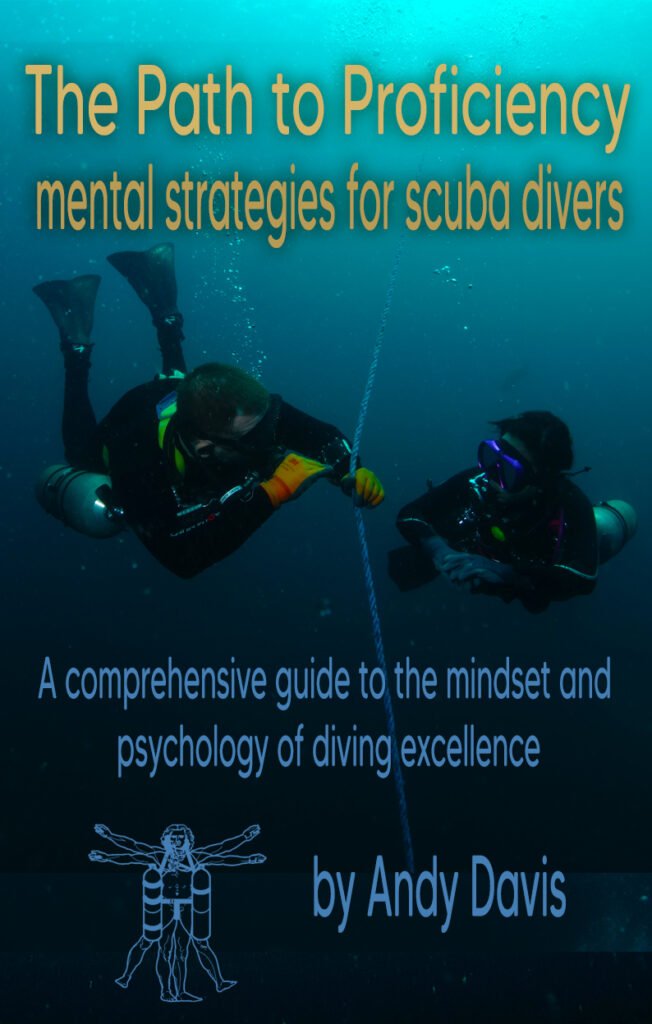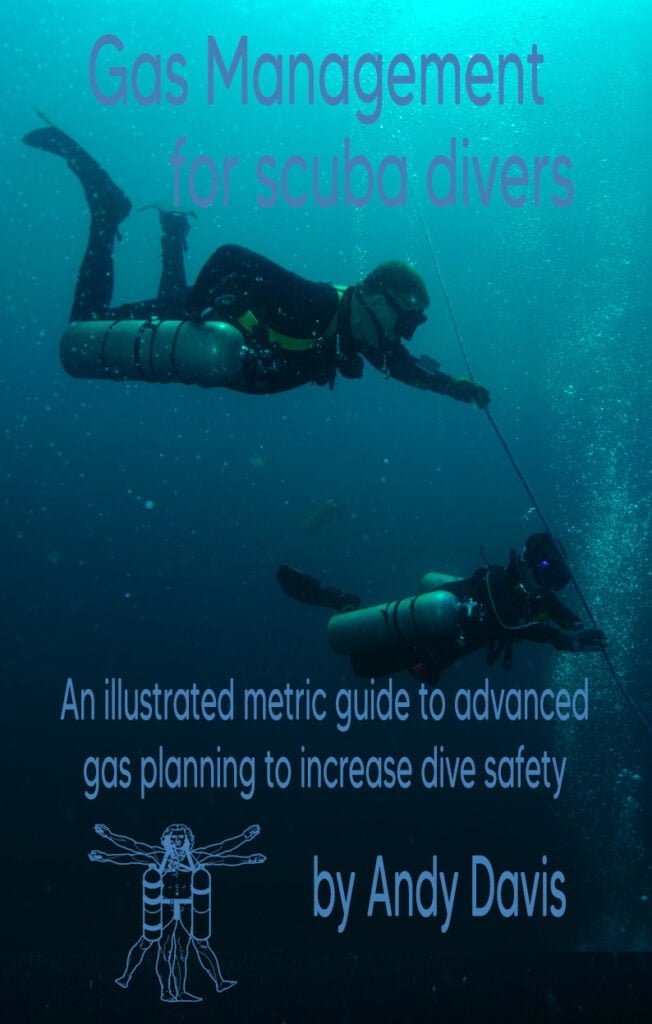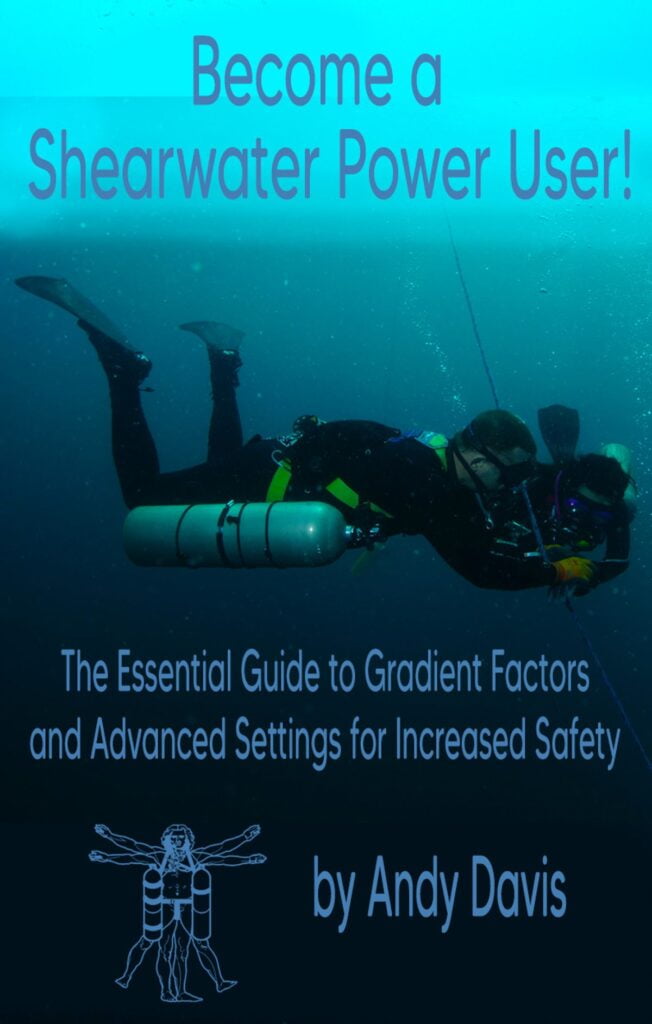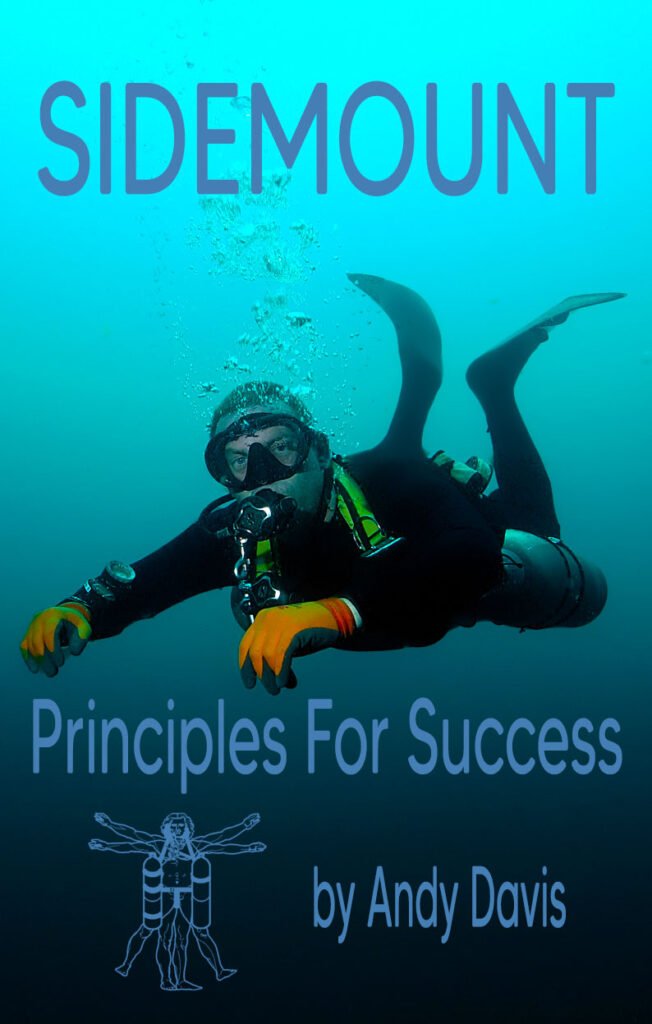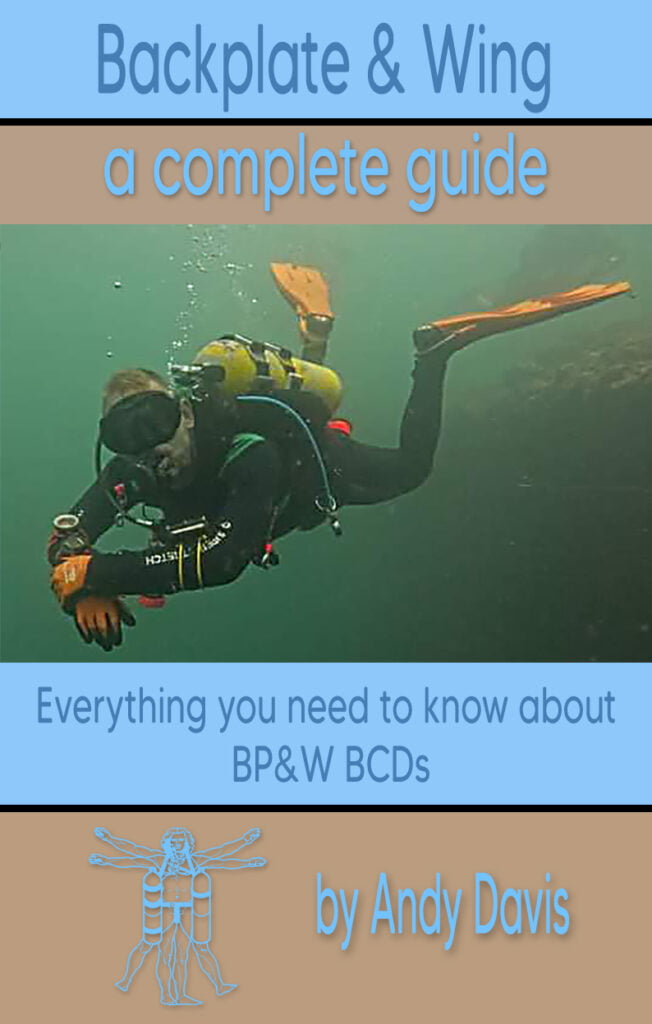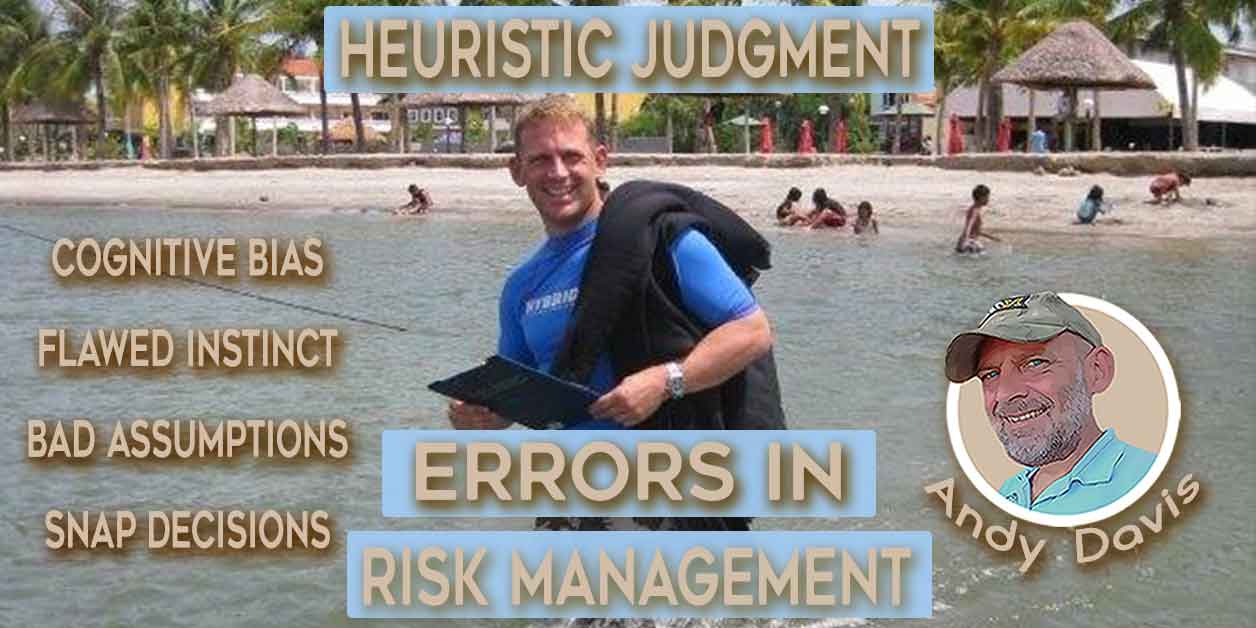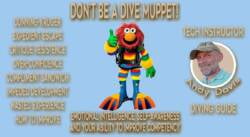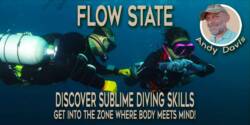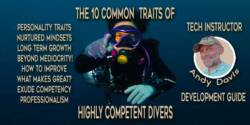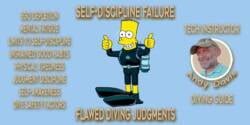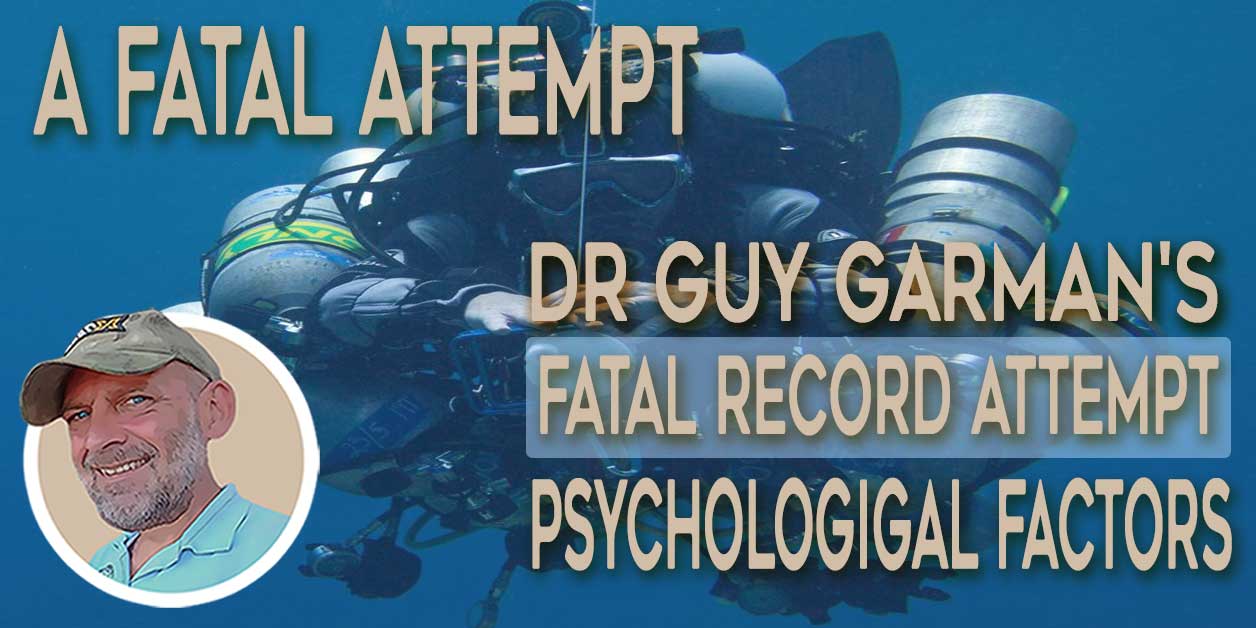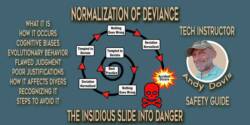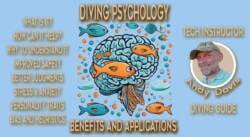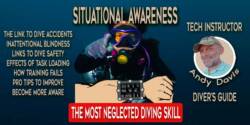Mastering Competency in Scuba Diving: The Path From Novice to Expert Diver
Have you ever encountered a scuba diver whose expertise and competency you wished to emulate?
What made that diver stand out? Perhaps it was their remarkable technical skills prowess, meticulous preparation, encyclopedic knowledge, or their calm demeanor in the face of challenges.
Highly competent divers possess a unique blend of attributes that set them apart.
They not only excel in the water but also demonstrate exceptional organization, foresight, and problem-solving abilities. Their confidence, coupled with extensive diving knowledge, enables them to lead and support their fellow divers effectively, making every dive seem effortless and safe.
Achieving diving competency isn’t a matter of chance or natural talent; it’s a journey that requires insight, effort, and deliberate action.
In this article, I will explain the essential elements of diving competency, why they are important, and how to develop them.
What is Competency?
Competency is an individual’s ability to perform a task successfully and efficiently. It encompasses skills, knowledge, applied experience, beneficial mindset, and positive behaviors necessary for effective performance in a specific role or task.
In the context of scuba diving, competency is critical as it directly impacts safety, enjoyment, and overall dive experience.
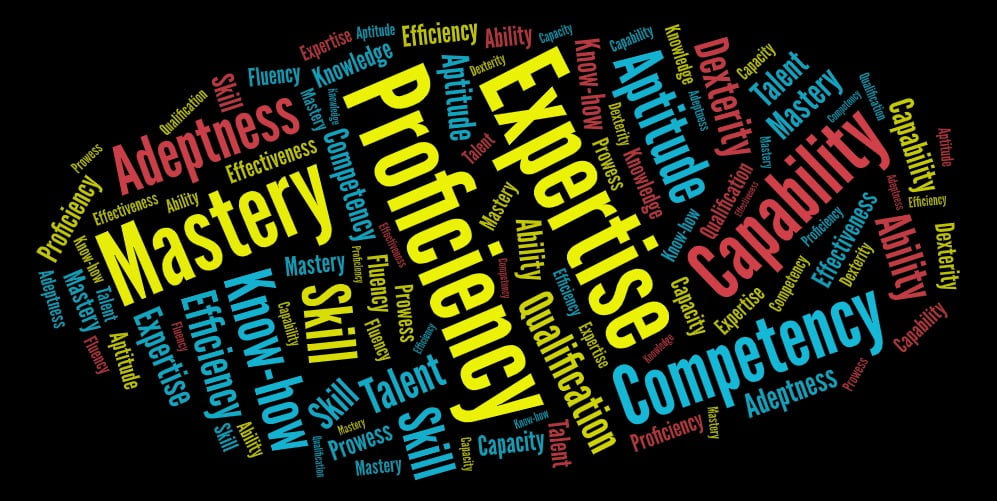
Why Do Divers Value and Respect Competency?
Competency is highly valued as it signifies proficiency and reliability, garnering trust and admiration from other divers.
It also boosts self-esteem and confidence when divers perceive themselves as competent, leading to a sense of accomplishment and fulfillment.
Competency and Social Value
Divers highly regard competence in others due to its indication of reliability, proficiency, and effectiveness.
Competent divers inspire trust and admiration, as they demonstrate the knowledge, skills, mindset, and abilities required to ensure safety underwater.
This trust also serves as the foundation for building strong interpersonal and team relationships, fostering collaboration and mutual respect.
Competency and Self-Esteem
Realistically perceiving competency within oneself is pivotal for bolstering self-esteem and confidence.
When divers view themselves as competent, they have a justified sense of capability for the challenges of their dives.
This self-assurance fuels personal growth and development through scuba diving, enriching overall well-being and enhancing one’s sense of fulfillment.
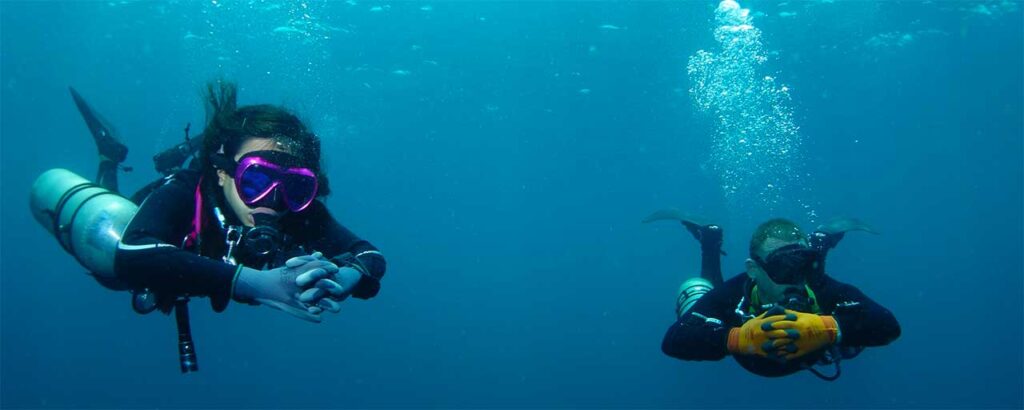
What Are Core Competencies in Scuba Diving?
Core competencies in scuba diving encompass a diverse range of skills, behaviors, attitudes, and attributes essential for safe and enjoyable underwater exploration.
These competencies can be categorized into various areas:
Motor Skills
Motor skills in scuba diving involve physical abilities essential for underwater movement and manipulation of equipment:
- Buoyancy Control: Mastering buoyancy to maintain neutral buoyancy, ascend, or descend smoothly with a high degree of control and low cognitive demand.
- Finning Techniques: Efficient use of fins to propel through water with minimal effort while maintaining stability and conserving energy.
Technical Skills
Technical skills encompass proficiency in equipment use, routine protocols, and emergency procedures:
- Equipment Operation: Familiarity with, and competent use of, scuba gear, including regulators, BCDs, and dive computers, and DSMBs.
- Emergency Response: Ability to reliably perform critical emergency procedures such as controlled ascents, air sharing, and proper deployment of safety equipment in response to equipment failures or dive accidents.
Mental Skills
Mental skills are crucial for effective decision-making, focus, and managing stress during dives:
- Situational Awareness: Assessing underwater conditions, anticipating risks, and adapting dive plans accordingly to ensure safety and enjoyment.
- Problem-solving: Quickly identifying and resolving issues such as equipment malfunctions or unexpected situations underwater while maintaining composure.
Personal Skills
Personal skills encompass individual traits and behaviors vital for safe and enjoyable diving experiences:
- Self-awareness: Understanding one’s physical and emotional limits, comfort levels, cognitive biases, and capabilities underwater to make sound judgments, set prudent limits, and establish a realistic level of self-confidence for risk management.
- Time Management: Efficiently organize dive logistics, accurately implement dive planning, and prioritize tasks to achieve goals.
Team Diving Skills
Team skills facilitate effective communication, coordination, and support among dive buddies and group members:
- Communication: Clear and concise exchange of information through hand signals, dive slates, and verbal cues to ensure mutual understanding and safety underwater.
- Collaboration: Working cohesively with dive partners to plan dives, monitor each other’s well-being, and provide assistance when required.
Psychological Skills
Psychological skills are essential for maintaining confidence, resilience, and focus during challenging dive situations:
- Mindset Cultivation: Shaping the mind to be more risk-aware, self-reliant, alert, proactive, conservative, and diligent.
- Resilience: Developing the ability to cope with stress, uncertainty, and unexpected events underwater while remaining calm and focused.
- Visualization: Using mental imagery to rehearse dive plans, visualize successful outcomes, prepare for emergencies, and manage anxiety before and during dives.
Human Factors Skills
Human factors skills involve understanding behavior, limitations, and interactions within the diving environment to enhance safety:
- Risk Management: Identifying potential hazards and implementing strategies to mitigate risks associated with equipment, environment, and diver behavior.
- Situational Judgment: Making informed decisions based on situational cues, experience, and risk assessment to ensure safe navigation and response to emergencies.
Learning Skills
Learning skills facilitate continuous education, skill development, and adaptation to new diving challenges:
- Continuous Education: Pursuing advanced training, certifications, and specialized courses to expand knowledge, skills, and proficiency as a diver.
- Feedback Incorporation: Actively seeking and incorporating feedback from instructors, peers, and personal experiences to identify areas for improvement and enhance overall competency.
Goal-setting Skills
Goal-setting skills involve establishing clear objectives and striving for continuous improvement and excellence in diving:
- Setting SMART Goals: Establishing Specific, Measurable, Achievable, Relevant, and Time-bound goals to enhance performance and progression in diving skills and experiences.
- Persistence and Adaptability: Maintaining commitment to long-term goals, overcoming setbacks, and adapting strategies to achieve desired outcomes in diving endeavors.
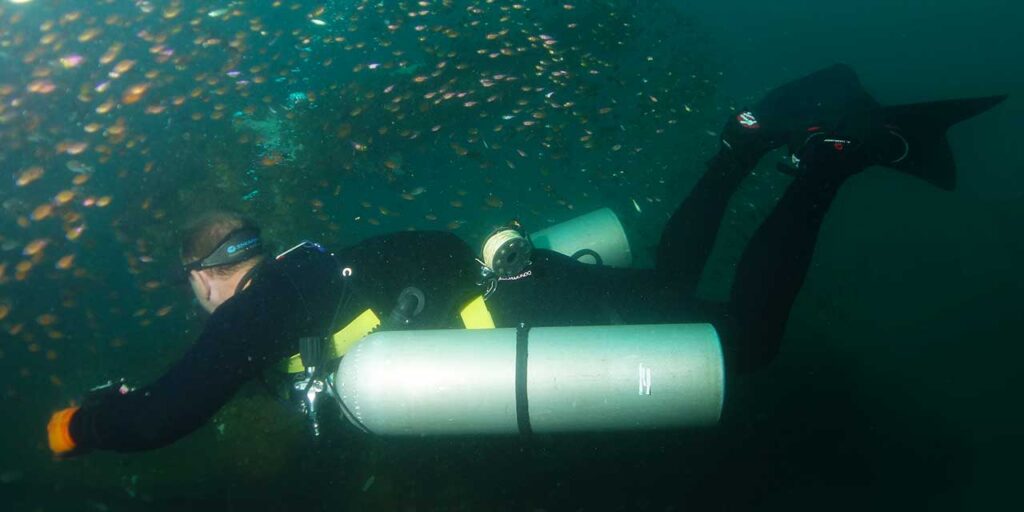
Why Competency is Important in Scuba Diving
Competency in scuba diving heightens safety, intrinsically motivates divers, and drives continuous improvement.
It combines technical skills, mindset, knowledge, experience, and behavior; reducing risks, enhancing enjoyment, and fostering growth in the sport.
Safety: Ensuring Psychological Preparedness
Competency in scuba diving extends beyond technical proficiency to encompass psychological readiness.
Divers with a high level of competency possess not only the technical skills but also the mental resilience and situational awareness necessary to handle underwater emergencies calmly and effectively.
For instance, mastering buoyancy control and emergency procedures instills confidence and equips divers to respond promptly and decisively to unexpected challenges.
By prioritizing both technical competence and psychological preparedness, divers can significantly mitigate risks and enhance overall safety during dives.
Motivation and Enjoyment: Harnessing Confidence
Perceived competence profoundly influences divers’ motivation and enjoyment of the sport.
When divers perceive themselves as competent, they exude confidence, which in turn fuels their motivation to embrace new challenges and a wider breadth of diving activities.
This confidence stems from a diver’s deep-seated and realistic belief in their ability relative to the dives they undertake.
Consequently, confident divers are more likely to dive frequently, seek out new learning opportunities, and pursue further training, leading to a heightened sense of enjoyment and fulfillment in their diving experiences.
Continuous Improvement: Embracing Growth Mindset
Competency in scuba diving is synonymous with a growth mindset and a commitment to continuous learning and skill enhancement.
Divers who prioritize competency understand that mastery is an ongoing journey rather than a destination.
By embracing a growth mindset, divers view each dive as an opportunity for growth and development, actively seeking to expand their knowledge, refine their techniques, and adapt to evolving diving challenges.
This proactive approach to learning ensures that divers remain adaptable, resilient, and proficient, enabling them to navigate complex dive scenarios with confidence and competence.
Understanding Competency in Scuba Diving
The Four Stages of Competence model, also referred to as the “conscious competence” learning model, originated in the 1960s and has become a fundamental concept in education and professional development.

The Four Stages of Diving Competency
The model outlines the journey from novice to master diver and highlights the importance of continuous learning and self-awareness:
Unconscious Incompetence (Ignorance)
At this stage, divers lack awareness of their skill or knowledge deficits and consequently underestimate the complexity of diving risks.
They unknowingly lack proficiency in essential skills such as buoyancy control, situational awareness, and reliable emergency procedures.
Without supervision and guidance, they pose a risk to themselves and others underwater.
Conscious Incompetence (Awareness)
Divers reach this stage when they become aware of their lack of proficiency in specific skills and procedures. They begin to recognize their limitations relative to the dives they undertake and the risks present.
This advances their understanding of diving risk management and motivates them to address the deficits they identify.
Conscious Competence (Learning)
Through structured training and deliberate practice, divers progress to the stage of conscious competence. They develop proficiency in fundamental diving skills and gain confidence in their ability to mitigate diving risks.
However, executing these skills still requires focused attention and deliberate effort. This stage is marked by increased confidence and competence in executing dive tasks.
Unconscious Competence (Mastery)
With continued experience and networking within the diving community, divers eventually reach the stage of unconscious competence.
Divers perform all dive-related tasks effortlessly and unconsciously. Their actions are ingrained and honed through extensive experience and deliberate practice. They can perform complex tasks instinctively and effortlessly.
At this level, divers demonstrate mastery of their craft and serve as role models for less experienced individuals.
Navigating Competency Challenges in Scuba Diving
While the journey through the four stages of competence is essential for skill development in scuba diving, divers may encounter challenges along the way.
These challenges can include succumbing to cognitive biases, ego, low self-awareness, and failing to recognize disingenuous false-positive feedback from poor role models and bad diving instructors.
Cognitive Biases in Skill Acquisition
Divers, like individuals in any field, are susceptible to cognitive biases that can cloud judgment and hinder skill development.
Biases such as confirmation bias, where divers seek out information that confirms their existing beliefs, or overconfidence bias, which may lead to underestimating risks, can impact decision-making and learning effectiveness underwater.
Ego and Self-Awareness
Ego can pose a significant challenge in scuba diving, as it may lead to overestimation of abilities and reluctance to acknowledge limitations.
Divers must cultivate self-awareness to recognize their skill level accurately and assess their readiness for various diving environments and challenges.
Without this self-awareness, divers may put themselves and others at risk by attempting dives beyond their competency level.
Recognition of False-Positive Feedback
In the pursuit of mastery, divers often seek feedback from instructors and peers. However, distinguishing genuine constructive criticism from disingenuous false-positive feedback is essential.
Poor role models and bad diving instructors who provide unwarranted praise or fail to honestly critique areas needing improvement can hinder competency development and enable dangerously false competence.
Divers must learn to discern valuable feedback and seek guidance from reputable sources to progress effectively.
Purchase my exclusive ebook!
A comprehensive guide to the mindset and psychology of diving excellence.
$20 Printable PDF Format, 298 pages
Diver Competency versus Diving Skills
While skills are specific proficiencies gained through training and experience, competencies encompass a broader set of abilities, including knowledge, behaviors, and attitudes.
Competence involves applying these skills effectively in real-world situations, demonstrating autonomy and adaptability.
Understanding the Distinction
In the realm of scuba diving, the terms “skills” and “competencies” are often used interchangeably, yet they hold distinct meanings.
A skill typically denotes a specific proficiency, such as buoyancy control or navigation, acquired through training and experience.
- Competencies encompass a broader spectrum of related strengths and behaviors.
- They integrate multiple skills with knowledge, judgment, and personal attributes.
- Competencies enable divers to navigate various underwater challenges effectively.
Skills: Foundational Proficiencies
Skills form the building blocks of a competent diver’s toolkit. These fundamental proficiencies, acquired through education, training, and hands-on experience, are specific and measurable abilities essential for performing tasks effectively underwater.
Examples include gas management, efficient propulsion, and rescue procedures, all of which are honed through deliberate practice and refinement over time.
Competency: The Holistic Capability
Competency transcends mere skills, encapsulating the ability to apply knowledge, skills, and behaviors cohesively to navigate the complexities of the underwater environment.
It entails a high degree of autonomy, adaptability to new challenges, and the capacity to contribute value to the diving team’s efforts.
Unlike experience, which reflects past accomplishments, competence is predictive of a diver’s future performance and behavior, reflecting their ability to excel in various diving scenarios.
Experience versus Competency
While experience is often regarded as a straightforward metric for assessing a diver’s capabilities, equating experience with competency can be misleading.
Experience, accumulated over time, offers exposure to diverse diving situations, providing a foundation for learning and adaptation.
However, competency encompasses not just the accumulation of experience but the mastery of skills, strategic thinking, and problem-solving finesse that ensure tasks are not merely completed but executed exceptionally well.
Key Distinctions Between Experience and Competence
To grasp the nuances between experience and competence in scuba diving, it’s crucial to consider several contrasting concepts:
- Foundation versus Application: Experience lays the groundwork by exposing divers to various underwater scenarios, fostering learning and adaptation. Competence, however, involves the skillful application of acquired knowledge and skills to navigate these scenarios effectively.
- Quantity versus Quality: Experience is often quantified by the number of dives or years spent underwater. In contrast, competence is measured by the quality of outcomes achieved through the proficient application of knowledge and skills.
- Static versus Dynamic: While experience can become stagnant without ongoing learning and improvement, competence thrives on dynamic growth, necessitating a commitment to staying updated with industry trends, advancements, and best practices.
Dispelling the Myth: Experience Does Not Equal Competency
Contrary to popular belief, experience alone does not equate to competency in scuba diving. While extensive experience may signify familiarity with underwater environments, it does not guarantee proficiency or excellence.
A diver’s competency is determined by their mindset, mastery of skills, ability to adapt to diverse challenges, and commitment to continuous learning and improvement.
What Does a High-Competency Scuba Diver Look Like?
A highly competent scuba diver exhibits a range of qualities that enable them to perform tasks successfully and inspire others. These traits include:
Strong Skill Set
Competent divers possess the necessary skills and knowledge required for their field.
They continually hone their abilities to stay proficient, demonstrating expertise in essential diving skills such as buoyancy control, navigation, and emergency procedures.
Their movements underwater are seamless and efficient, showcasing their high level of proficiency.
Adaptability
Competent individuals can adapt to new situations and challenges quickly.
They demonstrate flexibility in their approach, adjusting to varying dive conditions, equipment, and environments with ease.
This adaptability is crucial for handling unexpected underwater situations and ensuring safe dives.
Perseverance
Highly competent divers exhibit persistence and determination.
They overcome obstacles and setbacks without losing focus on their goals.
Whether dealing with challenging dive conditions or mastering complex skills, their perseverance drives them to succeed.
Goal Focus
Goal-oriented divers maintain a clear vision and set achievable objectives to guide their efforts.
They plan their dives meticulously, set personal and team goals, and work diligently to achieve them.
This focus ensures that they consistently improve and achieve high performance.
Positive Attitude
Maintaining a positive demeanor helps competent divers stay motivated and resilient in the face of challenges. Their optimism and enthusiasm for diving inspire others and contribute to a supportive and encouraging dive culture.
Continuous Learning
Lifelong learning is a hallmark of competency. Highly competent divers exhibit curiosity and always seek to expand their knowledge and skills.
They stay updated with the latest in diving techniques, safety protocols, and advancements in dive equipment. This commitment to continuous improvement enhances their proficiency and safety.
Effective Communication
Clear and effective communication is crucial in diving. Competent divers convey ideas and instructions well to others, ensuring smooth coordination and cooperation during dives.
Their ability to communicate effectively enhances safety and teamwork.
Reliability and Responsibility
Dependability is a key trait of competent divers. They follow dive plans meticulously and ensure their equipment is well-maintained.
Their reliability makes them trusted dive buddies, and their sense of responsibility ensures that safety protocols are always followed.
Calm and Composed Demeanor
Even in challenging situations, competent divers remain calm and composed. This trait helps them manage potential issues effectively and sets a positive example for others.
Their ability to stay calm under pressure is crucial for handling emergencies and ensuring safe dives.
Team Player
Competent divers work well with others, showing strong communication skills and a cooperative attitude. They are supportive and offer assistance when needed.
Their ability to collaborate effectively enhances the overall dive experience and safety for the entire team.
Passion and Enthusiasm
Enthusiasm for diving is evident in highly competent divers. Their passion drives them to excel and share their knowledge with others.
They contribute to a positive dive culture and inspire fellow divers through their dedication and love for the sport.
Attention to Detail
Competent divers are meticulous with their skills, protocols, and equipment. They constantly refine their practices and strive for excellence.
This attention to detail ensures that their dives are safe and enjoyable, minimizing risks and maximizing efficiency.
Situational Awareness
Highly competent divers are acutely aware of their surroundings. They are mindful of their environment, dive conditions, and the location of their dive buddy.
This heightened awareness enhances safety and enjoyment, allowing them to anticipate and respond to potential issues promptly.
How Personality Traits Influence Competency Development
Personality traits play a significant role in shaping a diver’s competency development.
The Big Five personality traits, also known as the Five Factor Model, are a widely used framework in psychology to describe human personality. These traits encompass five broad dimensions of personality.
Here’s how they impact diving competence:
- Conscientiousness: Conscientious divers exhibit high levels of organization, responsibility, and thoroughness. This trait fosters competence by promoting diligence, attention to detail, risk aversion, and safe diving practices, essential for becoming more competent as a diver.
- Agreeableness: Agreeable diverss tend to be cooperative, empathetic, and considerate. This trait enhances competency development by facilitating positive interpersonal interactions, teamwork, and collaboration, crucial for navigating complex challenges in scuba diving.
- Openness to Experience: Open-minded divers are curious, creative, and receptive to new ideas. This trait fosters competency by encouraging exploration, innovation, and adaptability, enabling divers to consider better alternatives and be more receptive to beneficial feedback.
- Emotional Stability: Divers with high emotional stability, or low neuroticism, exhibit resilience, composure, and emotional regulation. This trait contributes to competency development by mitigating stress, anxiety, and impulsivity, promoting clear decision-making, and reducing negative ego defensive reactions that stifle development.
- Extraversion: Extraverted divers are sociable, outgoing, and assertive. While less directly linked to competency, extraversion can enhance competence development by facilitating communication, networking, and leadership skills, valuable for engaging in group dives and diving community involvement.
Personality traits influence competence development by shaping individuals’ behavioral tendencies, cognitive processes, and interpersonal dynamics, thereby impacting their ability to acquire, apply, and refine skills effectively in scuba diving and other domains.
Observable Traits of Incompetency in Scuba Divers
Incompetent Behaviors
- Overestimation of Skills: Divers may contentedly attempt challenging dives beyond their proficiency level and comfort zone.
- Lack of Preparedness: Failure to conduct pre-dive safety checks, comprehensive diving planning, and gas management.
- Disregard for Safety Protocols: Neglecting to follow established safety procedures, like buddy checks or dive plans, resulting in poor communication with dive partners.
Incompetency Mindset
- Unwarranted Confidence: Divers with limited experience may display unwarranted confidence, refusing to acknowledge the need for caution or conservatism.
- Resistance to Feedback: Ignoring advice from experienced divers, believing they already possess ample knowledge and skills.
- Disrespecting Heightened Demands: A competent recreational scuba diver may fail to understand and acknowledge that their existing competency is insufficient for more challenging dives; such as decompression, cave, and wreck penetration diving.
Improper Attitudes
- Arrogance: Dismissing safe diving guidelines and/or prudent recommendations, by believing that they aren’t applicable to the individual.
- Slap-Dash Approach: Exhibiting little or no diligence, care, and attention to dive gear configuration, planning and conducting dives.
- Blame-Shifting: Shifting responsibility for errors or mishaps underwater onto external factors.
- Unguided Knowledge: Over-reliance on a purely theoretical understanding of diving issues, without practical experience or testing presumptions to ensure accuracy.
Incompetent Habits and Practices
- Reckless Behavior: Engaging in risky practices, like diving beyond safe depths, without proper training or certification.
- Inconsistent Performance: Demonstrating competence in some situations while struggling in others, highlighting inconsistencies in proficiency.
- Failure to Learn: Failing to reflect on mistakes or seek further education after encountering setbacks during dives.
These observable traits reflect the Dunning-Kruger effect, where individuals with limited competence lack insight into their own inadequacies and overestimate their abilities.
Achieving Competency in Scuba Diving
Achieving competency in scuba diving requires a comprehensive understanding of the skills, behaviors, and mindset necessary for safe and effective diving.
By recognizing and addressing areas for improvement, divers can transition from novice to expert, ensuring a safer and more enjoyable experience underwater. Continuous learning, self-awareness, and adherence to safety protocols are crucial components of this journey.
Mastering these elements not only enhances personal proficiency but also contributes to the overall safety and success of diving teams. By following the outlined path, divers can achieve excellence and inspire others in the diving community.
About The Author

Andy Davis is a RAID, PADI TecRec, ANDI, BSAC, and SSI-qualified independent technical diving instructor who specializes in teaching sidemount, trimix, and advanced wreck diving courses.
Currently residing in Subic Bay, Philippines; he has amassed more than 10,000 open-circuit and CCR dives over three decades of challenging diving across the globe.
Andy has published numerous diving magazine articles and designed advanced certification courses for several dive training agencies, He regularly tests and reviews new dive gear for scuba equipment manufacturers. Andy is currently writing a series of advanced diving books and creating a range of tech diving clothing and accessories.
Prior to becoming a professional technical diving educator in 2006, Andy was a commissioned officer in the Royal Air Force and has served in Iraq, Afghanistan, Belize, and Cyprus.
In 2023, Andy was named in the “Who’s Who of Sidemount” list by GUE InDepth Magazine.
Purchase my exclusive diving ebooks!
Originally posted 2024-05-27 17:19:09.

